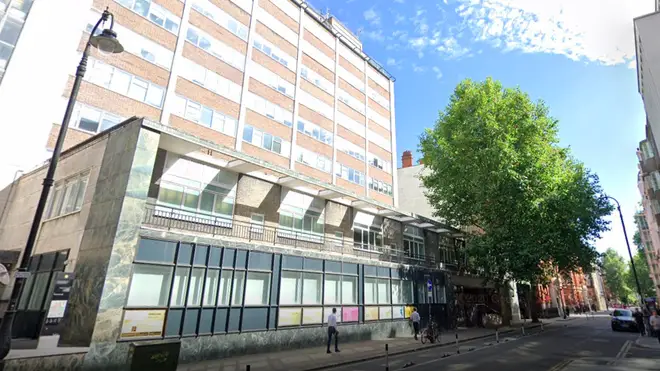
Ian Payne 4am - 7am
19 June 2020, 19:49

UCL has announced it is renaming lecture theatres and a building named after prominent eugenicists.
The university said on Friday that the Galton Lecture Theatre had been renamed Lecture Theatre 115, the Pearson Lecture Theatre changed to Lecture Theatre G22 and the Pearson Building to the North-West Wing.
Victorian scientist Francis Galton coined the term eugenics and endowed UCL with his personal collection and archive along with a bequest for the country's first professorial chair of eugenics of which Karl Pearson was the first holder, the university said.
It said that signs on the building and lecture theatres will be taken down with immediate effect while other changes to the names on maps and signposts will take place as soon as "practicable".
UCL president and provost Professor Michael Arthur said the move was an "important first step" for the university as it and acknowledges and addresses its historic links with the eugenics movement.
He added: "This problematic history has, and continues, to cause significant concern for many in our community and has a profound impact on the sense of belonging that we want all of our staff and students to have.

Protesters clash with police in Glasgow, Scotland
"Although UCL is a very different place than it was in the 19th century, any suggestion that we celebrate these ideas or the figures behind them creates an unwelcoming environment for many in our community.
"I am also clear that this decision is just one step in a journey and we need to go much further by listening to our community and taking practical and targeted steps to address racism and inequality."
Eugenics was the study of the selective breeding of humans to increase the occurrence of heritable characteristics regarded as desirable.
The decision was made by Prof Arthur and ratified by the university's council following a recommendation from its buildings naming and renaming committee.
The committee, made up of staff, students, and equality, diversity and inclusion representatives, will also oversee any future renaming of the areas, UCL said.
Professor of pharmaceutical nanoscience Ijeoma Uchegbu, the provost's envoy for race equality, said: "I cannot begin to express my joy at this decision.
"Our buildings and spaces are places of learning and aspiration and should never have been named after eugenicists.
"Today UCL has done the right thing."
The renaming follows a series of recommendations made by members of the inquiry into the history of eugenics at UCL, which reported back earlier this year.
A response group of senior UCL representatives, including academic staff, equality experts and the Students' Union, is being formed to consider all the recommendations from the inquiry.
The group will look at action such as funding new scholarships to study race and racism, a commitment to ensure UCL staff and students learn about the history and legacy of eugenics, and the creation of a research post to further examine the university's history of eugenics.
It will draw up implementation plan for consideration by the academic board and approval by UCL's council.
Eugenics was an acceptable scientific theory before it was completely debunked after its application by Nazi Germany.
Many notable people and societies - including the left-wing Fabian Society - advocated its use.
It comes amid a recent row over statues dedicated to former slave owners, such as Edward Colston which was pulled down and thrown into the harbour in Bristol.
Recently in Oxford, there have been efforts to remove the statue of Cecil Rhodes, who was one of the most committed imperialists of the 19th Century and served as Prime Minister of the Cape Colony, South Africa.